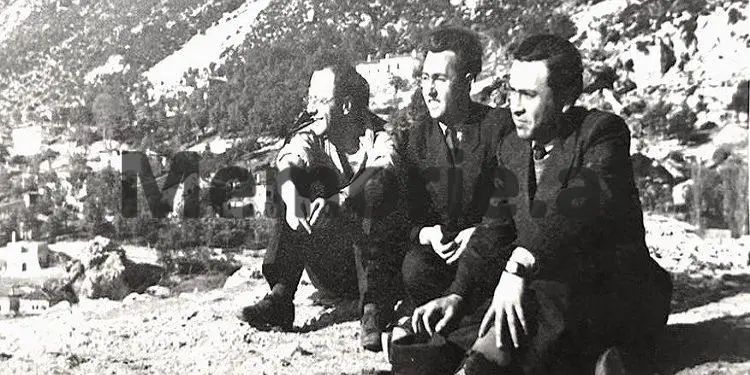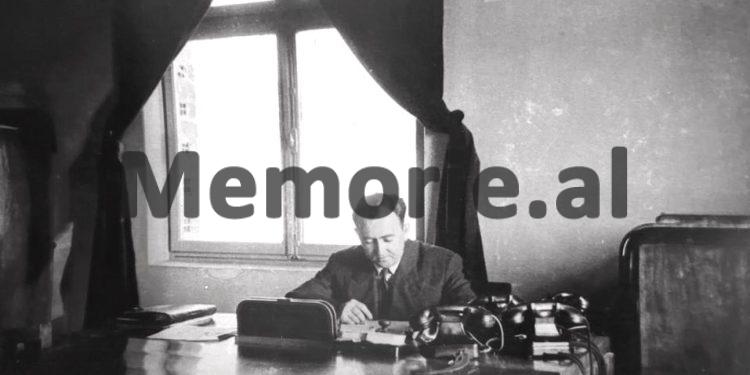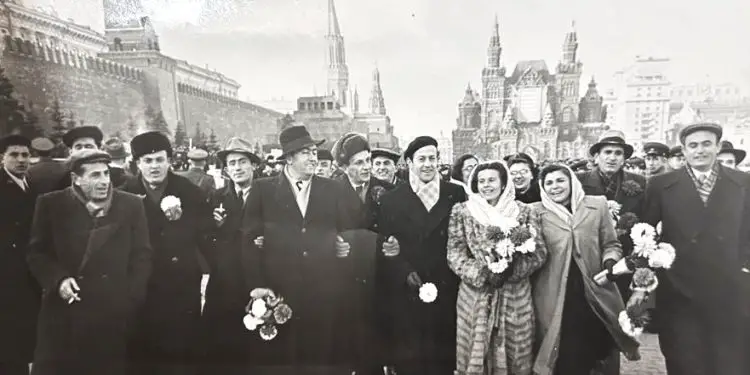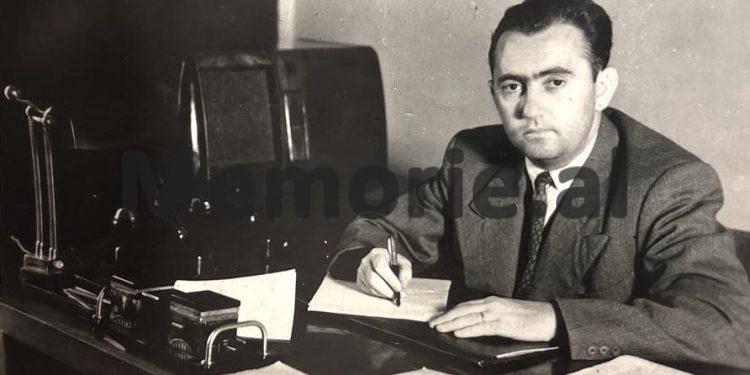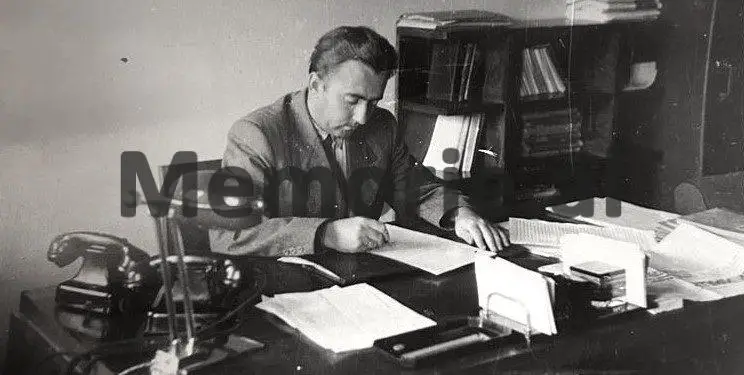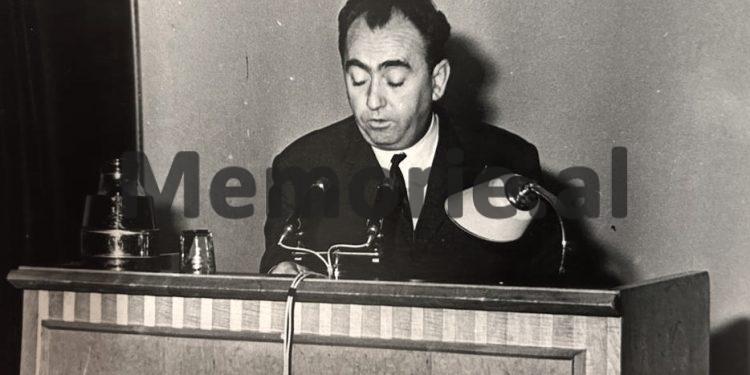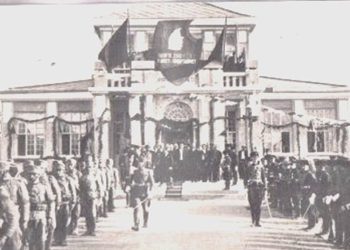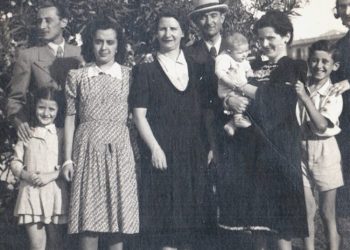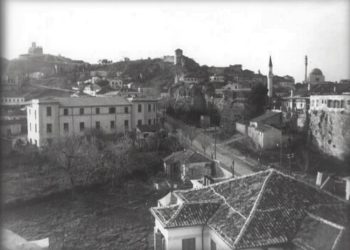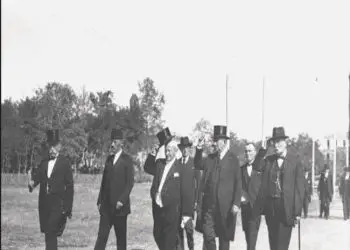By Fadil Paçrami
The tenth part
Memorie.al / What is prison? It is the place where those who have been sentenced to deprivation of liberty are kept, we would say by reading any dictionary. But that is little. Prison and freedom – two opposites. Previously: what is freedom? In short: to be free means to do what you want, to think and act as you wish in the exercise and fulfillment of your freedoms and rights, as a person and as a citizen, but always without harming and violating others. . Again: to think and act. We are talking about democratic freedoms, from those of speech, press, assembly and organization in various parties and associations, ensuring the conditions where ideas, requests and human wills can find expression and concretization, from those of the biological-related plan with the being itself, to those of the social plan, related to the ways of living.
Continues from last issue
More than 15 years passed like this. Although it was known that the accusations, as they were constructed, did not stand, that the investigative process and the judicial process proved the opposite, that the laws and all legal procedures were violated, that time – this fair, strict and infallible judge, spoke strongly, from that and how the truth was, that laws and articles of the Constitution fell, that the foundations of tyranny were shaken and many dogmas and taboos from the past were overturned – the Gods of Olympus did not want to know and turned a deaf ear, they did not play by their deeds and iniquities, and I continue to be in prison, convicted without laws, insulted with all kinds of names, old as a creator, but not subdued and depressed, on the contrary, accusatory and proud.
I never lost faith that I was right and that the truth will come out one day. So I found the strength, the will, everything I needed to face evil and not be separated from creative work, as well as to serve the country even in these conditions. For this, let the plays that I wrote here in prison speak, which permeate the ideas of freedom and those against tyranny so crippling, for anyone, but in a special way, those who, day and night, for many years, killed their eyes the crossed bars of violence, injustice and oppression.
Finally, until I had opinions, expressed or unexpressed, these openly, in party meetings and others, as well as in literary creativity, with a democratic tendency, tolerance and debate (although they were speculatively and deceptively called liberal), which fell against the extreme dictatorial and centralizing ones, with the denial and trampling of human rights and freedoms, the isolation from the world and the confinement within the shell of barbed wire, the party and state bureaucratization, the suppression of pluralistic thought and literary creativity, with a tendency democratic, tolerance and debate, the question is asked: why am I still in prison, when all these and many others are already called fatal mistakes, which led the country to where it is today, how can this be reconciled with the conditions of pluralism and party and with democratic developments?!
Recently, I happened to read in newspapers and hear on radio and television programs that political prisoners, since they have accumulated a lot of money, are prone to burst into vengeful excesses, as well as calls to close their archives. the past (so also the files of court proceedings – I am talking mainly about these), for 50 or more years, supposedly for the sake of national unity, even though some words like; “national reconciliation”, they have a voice in their mouths. Allow me to express my open opinion, on both of these issues, which are nothing more than manifestations of that demonic psychology, of those forces that measure others with their yardstick and are afraid of evil and crimes that they have done. Keep calm, gentlemen.
Except boll, don’t do anything else.
– It is known how much has been spoken and written, in what bitter and deceptive language and by how many people, starting from the main party and state leaders, up to writers and artists, scientific workers, journalists and others, since more than ten years, for my “heresy”, so much that it is not remembered at all. And yet I declare: All of these are alive, let them deal with their consciences; I will not harass anyone, the less I think of revenge.
I am satisfied with a public statement from the Supreme Court, that the sentence was unjust, and this is announced, as the law says, in a meeting, it falls to the writers and artists. Regarding the 4th Plenum of the Central Committee of the Party, where this evil began, time has already rejected it, what has become clear to everyone.
It’s not too late for me, I don’t even want to know, but I say that it is in the best interest of the APS, not to carry the burden that brought them so much trouble and prevents them from walking, as I wrote in a last letter, sent to Ramiz Ali, in November of last year, where I asked him two questions, starting with: why he did not go to the meeting of the CSBE, why the mistakes made are not acknowledged and openly stated, why pluralism is not accepted party, etc., until why I am kept in prison even today; can the expected steps be taken, with such heritage and remains, from a past without legalities from which we want to break away; the creation of the legal state and the development of democratic processes?!
But that’s their job; let them do as they want. The political judicial processes, for matters of conscience and opinion, I emphasize those of the 70s, are among the blackest pages in the history of this nation, the arbitrariness and illegalities of the dictatorial period (not forgetting those before them) and the number of large families, with mothers and fathers, sons and daughters, brothers and sisters, in exile, have burdened and brought a lot of damage to the country. What was done wrong must be fixed and put in place, this is required.
And this is quite right and necessary. It is not about dealing with their authors. They are, therefore, two things that should not be confused. Any decision that would not do this, by anyone, even by the People’s Assembly itself, as the highest legislative body, would be unfair and unacceptable, a proof of a dishonest and deceptive attitude, which aims to inhibit the processes of democratization of the country.
And the last one: what can be done and what can you do, as the Forum of Human Rights and Fundamental Freedoms, as for what I wrote to you above, I don’t know and I refrain from making any requests, because I don’t want to – I don’t I did this, not even during the investigation and judicial process, to confuse and put others, whoever they are, in difficulties, and obligations whatever. This is the first.
The second: I leave you a free hand, to do as I wrote to you everything that is called right and, in the interest of the issue of democratization processes, of the country’s life.
I add that as a person, when I will come out of this grave where I am, I have in mind to remain independent, to always be a voice in defense of human rights and freedoms, whenever and for whomever. In this sense, many things bring me closer to your forum, as an organization called to play a role with precious values, in the interest of the country and democratic developments, today and in the future.
Greater Kosovo, 6.3.1991
***
Receive:
Ramiz Alia, First Secretary of the ALP Central Committee
Sali Berisha, Chairman of the DP Steering Committee
Sabri Godo, Chairman of the PR Initiating Committee
I am addressing you all three together, sending you this letter, separately, with the same text.
I am clarifying from the beginning: I will focus and limit myself to only one issue – related to after March 31.
Please understand me correctly, I speak to you:
– Just like any citizen.
– As someone who is hurt and disturbed by something, as someone who does not start, in the given case, from a hindsight that is neither malicious nor pretentious, as someone who finds the strength to put everything that has happened behind him and looks ahead,
– Even as a literary creator.
Maybe what I took the liberty to write to you about has been thought of (election campaigns don’t reveal all the quarters, this is known), as in the last possibility, so I won’t say anything special. So be it! That’s why this introduction is necessary, and I’m sorry if I spun it a little, but I named it usefully, considering the locations: you, on top of Olympus, me in the ninth circle of Dante’s hell.
I’m starting:
I followed, as much as possible, and supported the country’s democratization processes. I am convinced that they are already irreversible and unstoppable. I am also aware that the path we are embarking on is not easy, aware of the difficult and turbulent situation we are going through.
I am not going into evaluations and considerations, what was done, how much and how it is being done, because that is not the case. I don’t even want to create misunderstandings, because of bias and preferences (not that I don’t have), even though they wouldn’t serve the purpose of this letter.
Specifically:
– The March 31 elections will give us, after so many decades, a pluralist People’s Assembly (parliament) and this will be the biggest victory of all.
– The March 31 elections will give more or less votes and seats in the parliament to one or the other political party, so there will be partial-party victories or not.
– On these grounds (I am coming to the issue I spoke about at the beginning, regarding after March 31), why not have a multiparty pluralist government or coalition, as it is called, and now at the beginning – for a while (how much, that future developments will tell). In today’s conditions, when all forces must be united, in order to get out of the situation we are in, contain the severe social conflicts and accelerate the steps of moving forward towards Europe, it seems useful to me that the country needs this, demands it, must.
I am trying to argue:
– Whichever party will win the majority of seats in the parliament, it will be difficult to heal today’s serious wounds alone and move the country forward at the rates required to get out of the situation we are in. – In the conditions of a one-party government, whatever it may be, the political war with excesses, use of force, strikes, mass demonstrations and others, will continue and it is not known what form and size it may take further. So destabilization can deepen.
– If it will be the Labor Party, as the events have progressed, it will no longer be able to run the country alone, because it needs to change its mentality and working practices, recognize and correct the mistakes made, clarify and crystallize its reformed program and others, for which dialogue and tolerance are necessary even within the government.
– If it will be the Democratic Party or the Republican Party (even in a bilateral coalition, as I have had the chance to read), even these will not be able to run the country alone, because they need to clarify and crystallize their programs, to gain governance experience and renew the state apparatus, which in today’s state, with bureaucratic mindset and work practices, will oppose and hinder them (Already this phenomenon is visible, with the description of the administration).
It goes without saying:
– The Prime Minister will belong to the party that won the majority and many of the ministers will belong to it. There will be vice-prime ministers and ministers from other parties as well. Even independent. In all cases, the government must consist of capable people, according to the profiles of young people of the most vital age, who have gained or will gain the trust and, the appropriate authority.
– That the political struggle will continue both in the parliament and in the government, and outside them with the press, for the victory and the implementation of the party programs as a whole and special issues, this is known, but under the conditions and with the means that guarantee parliamentary republics, the constitution, the multiparty parliament and government, and the rule of law.
There are precedents that speak of this:
– After the Second World War, as it is known, when many European countries, faced with great economic difficulties and spiritual crises, with internal divisions, such as France and Italy, created coalition governments (multicolor, as they were called), with participation from the main parties of the time, apart from the Degolists and Christian Democrats, also communists and other socialists. How long did they last? For a while of course. What did they do? Overcame the first difficulties.
-This happened to some extent in some of the countries of the East, where socialist, agrarian parties, etc. entered the first governments. In fact, even in our country, starting after the Liberation, in addition to communists, others without a party, with different views, took part in the government (there were no other political parties then). Why was this done? From the difficult conditions, the divisions in the people, the need for skilled people, specialists, etc. Did it go well? No doubt. I’m not talking about how it was done and what happened next.
There is a condition here, which should be emphasized: the necessity of mutual respect – recognizing the general benefit, for the good of the Motherland, the interests of the parties should also be recognized and respected. Today in the world, this has become a norm in coalitions, in economic relations and everywhere, for the general good, of peace, stability and developments as a whole, but also for the benefit of the parties. So, a serious attitude is required, in terms of tolerance; infidelities and quarrels do not go away, and let no one remember that they are not agreed today and that you can throw them at others.
Finally:
– I expressed an opinion, that’s all.
– This could be an alternative – worth looking into.
– The great good of the country, above the special party ones.
I tried to be clear, concrete and correct; I don’t know how well I succeeded.
Greater Kosovo, 11.3.1991
CHALLENGE
Yes, this was the only possibility of reaction, in the conditions I was in, from the time when the odyssey began, which I spoke about: first in the party, where for explanations, they did not want to know; then to the investigator and to the court, where there was no question of defense, because there were no laws; even in prison, where it was thought of a complete isolation and, finally, to shut my mouth.
But as in the first two, also in the third, I chose the challenge. The letters from the prison that I listed above talk about that. How they also talk about the convictions I adhered to, the belief that one day justice would come out, as well as the aspiration for another democratic future of the country. Of course it was not easy, but…!
- As much as I knew that everything happened to me, it was the work of Enver Hoxha;
– As much as I was convinced, that evens the sentence of 25 years in prison, which was given not by the court, but by him;
– As much as I can say, that I knew his portrait intimately, as a character of the Shakespearean Richard III type;
– No matter how much I had no illusions, that he could change his path, that he had shown this for years;
– As much as I knew that his revenge knew no bounds, the more powerful he became; I still thought, don’t be silent, even in prison conditions.
The voices reaching there, – in Burrell’s hell-cells, about his crises, such as the heart attack in the fall of ’73 and the neuroses with blurred hallucinations, which were added, in later years, spurred me on even more. I was very persistent in denouncing the untruths, accusations, intrigues and all the way they treated me, to turn to him himself for these things, while he was still alive.
He wanted submission and silence, from the beginning, from where he came out: that he was right as always, that liberalism was really a danger for the country at that time, that the policy of closure and isolation from the world was the path that had to be followed, that further austerity measures were necessary. I didn’t go down that path, so his anger also took on those proportions, not only for everything that happened to me, but as it also appears from the treatment he gives to the issue, returning to it several times in his speeches and published writings, in his works his multivolume.
- After the death of Enver Hoxha, I undertook an even wider denunciation mainly of illegal violations, punishments not based on the law with prison and exile, violations of procedures and arbitrary interpretations of laws in force, extralegal actions of state bodies, etc. I started by rejecting the court decision, seeking protection of legality, turning first to the Supreme Court, and then to the Presidium of the People’s Assembly (see the text published above). Outcome?
As much as I emphasized that I was now waiting for the answer from the highest state body, after some time, I received this letter from the President of the Supreme Court Aranit Çela, which textually said: “We examined your case, it turns out that the decision of the court with which you have been convicted for the crimes provided for by Articles 72 and 73/2 of the Criminal Code, is well-founded. Your guilt for these crimes has been proven with convincing evidence; therefore there is no place to make a request for the protection of legality, against the court’s decision”.
It is impossible that President Ramiz Alia was not informed about this. Nothing, therefore, had changed, nor was it in mind, it continued on the path of breaking the laws and crime, as before. In August 1991, after I got out of prison, I addressed the same request and more or less the same text, again to the Supreme Court. I persisted in rejecting the court’s decision as illegal. This time, the matter was looked at responsibly (something had started to change and was in the process). So it was thrown to the Plenum of the Supreme Court for review, as; “Request for protection of legality”.
In the report that was presented with the signature of the president of the Supreme Court of that time, Kleanthi Koçi, it is stated: “By decision No. 2, dated 31.3.1977, of the Criminal College of the Supreme Court, the guilty declaration of the accused was decided Fadil Paçrami, for the crimes of sabotage and propaganda agitation and based on articles 72 and 73/2 of the Criminal Code, has finally sentenced him to 25 years of deprivation of liberty. Memorie.al
The next issue follows




